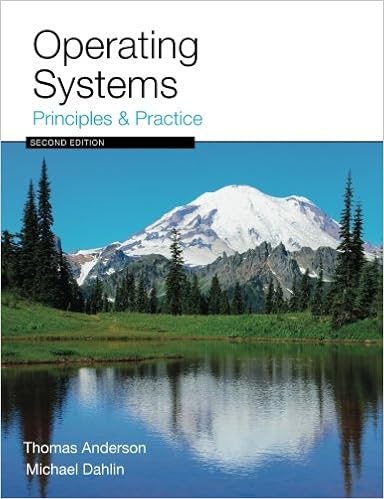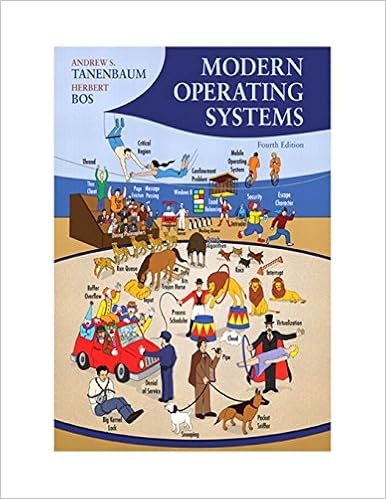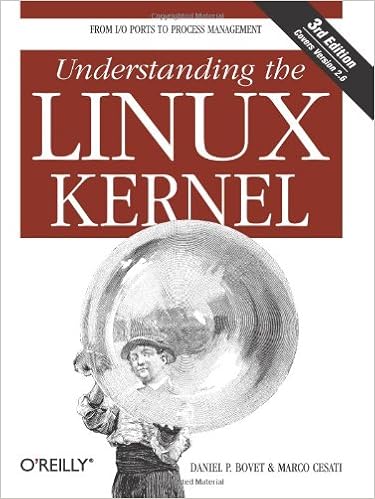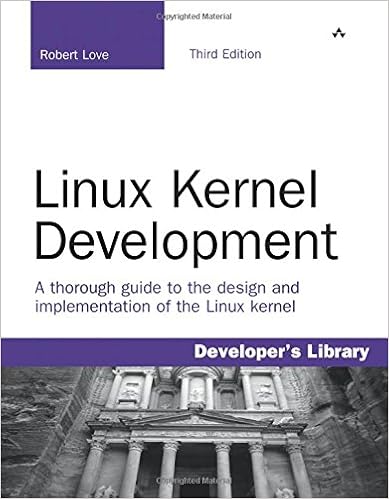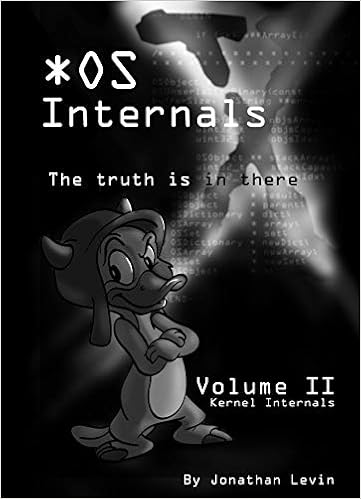Staff
Instructor: Kyle C. Hale
Office Hours: Wed 3:05-5:05 PM (SB 229C)
E-mail: khale [at] cs [dot] iit [dot] edu
TAs:
Amal Rizvi
Office Hours: WF 10-11:30AM (SB 115)
E-mail: arizvi1 [at] hawk [dot] iit [dot] edu
Boyang Li
Office Hours: T 3:00-4:00PM, Th 1:30-3:00PM (SB 007B)
E-mail: bli70 [at] hawk [dot] iit [dot] edu
Course Info
Course number: CS 450
Semester: Spring 2019
Lecture Time: Mon/Wed 1:50PM - 3:05PM
Lecture Location: Pritzker 111
Overview
Operating systems run the world. Without an OS, you couldn't have hundreds of programs running at once, you'd have to have deep understanding of hardware, and you'd have to rewrite your code for each new machine on the market. You wouldn't have web servers, desktop machines, laptops, phones, or smart watches; no Siri, no Alexa, no TensorFlow or CUDA programs.
In this course, you will dive straight into the deepest and often most confounding component of a computer system's software stack. You will become familiar with both the high-level concepts underpinning modern operating systems and with low-level mechanisms, in addition to new and emerging techniques and programming models for computer systems. I am a strong believer in learning by doing, so the majority of your time for this course will be spent working on programming projects, both very low-level work and high-level (user-space) work. This course will be challenging! It will bring together a lot of concepts you've learned in your previous courses, from data structures and algorithms to assembly language, computer architecture, virtual memory, and advanced C programming.
For this course, I assume that you have basic familiarity with computer organization (as introduced in CS 350), data structures, C, and systems programming (as covered in CS 351). You will for sure need to be able to program in C and should be able to navigate around a UNIX environment.
Communication
We will be primarily using Piazza as a course communication mechanism. If you have an issue or question that is not strictly private (especially one that would benefit everyone were it answered), please use Piazza as your first resource. The instructor, the TA, and your fellow classmates will be there to help. Note that you can also post anonymously if you so choose.Homeworks
While there will be no homework to turn it, it is a very good idea to do some of the homeworks associated with the readings as I post them. These are usually short coding tasks that use a simulator for the OS component in question. These homeworks will help solidify knowledge needed for the exams.
Readings
In addition to the projects (and homeworks if you're studious), you'll be needing to do the readings I post (almost) every lecture. These will primarily come from the OSTEP book, but I will also post other required and optional readings from seminal research papers, articles, and books.
We will, when time allows, also be spending some time reading code! This will likely include code snippets from real OSes including the Linux kernel.
The following is a rough schedule of the class. Note that it is subject to change.
Lecture Schedule
| Week | Date | Item | Topic | Notes | Reading |
|---|---|---|---|---|---|
| 1 | Mon 1/14 | Lec 1 | Intro and Administrivia | slides; p1a out | Required Reading: OSTEP Preface, 1, 2 |
| 1 | Wed 1/16 | Lec 2 | Resource Virtualization and Processes | slides | Required Reading: OSTEP 3, 4, 5, 6, System Calls |
| 2 | Mon 1/21 | holiday | MLK Day (No class) | p1a in, p1b out | |
| 2 | Wed 1/23 | Lec 3 | Scheduling | slides | Required Reading: OSTEP 7, 8,
Summary,
Linux processes,
Interrupts (gentle) Optional Reading: A decade of wasted cores, OSTEP: Multi-processor Scheduling, Linux CFS |
| 3 | Mon 1/28 | Lec 4 | Virtual Memory | slides follow-up video |
Required Reading: OSTEP 13, 15,
16, Anatomy of a program in memory Optional Reading: Kernel memory management, Closures, stacks, and the heap |
| 3 | Wed 1/30 | -- | Arctic Interrupt: University closed | Required Reading: OSTEP 18, 19 | |
| 4 | Mon 2/4 | Lec 5 | Intro to Paging | slides p1b in |
Required Reading: OSTEP 20, Getting Physical with Memory Optional Reading: Memory Translation and Segmentation |
| 4 | Wed 2/6 | Lec 6 | Multi-level Paging and the TLB | Guest lecturer; slides | Required Reading: OSTEP 21, 22, Summary Optional Reading: OSTEP 23, The Page Cache |
| 5 | Mon 2/12 | Lec 7 | Virtual Memory and Paging Tricks | slides | Required Reading: OSTEP 25, 26 |
| 5 | Wed 2/14 | Lec 8 | Concurrency I: Threads | slides | Required Reading: OSTEP 28, 29 |
| 6 | Mon 2/18 | Lec 9 | Concurrency II: Mutual Exclusion (locks) | slides | Required Reading: OSTEP 30 |
| 6 | Wed 2/20 | Lec 10 | Concurrency III: Signaling and Condition Variables | slides | Required Reading: OSTEP 31, 33, Signals, Linux kernel signals |
| 7 | Mon 2/25 | Lec 11 | Concurrency IV: Semaphores, Signals, Event-driven architecture | slides | Required Reading: OSTEP 32, Sys V. Shared Memory, Sys V. Message Queues |
| 7 | Wed 2/27 | Lec 12 | Concurrency V: Concurrency Bugs and IPC | slides | Required Reading: OSTEP d, 36 |
| 8 | Mon 3/4 | Lec 13 | I/O I: Devices and Drivers | Required Reading: Overview of PCIe, Chipsets and the Memory Map Optional Reading: How PCI Express Works |
|
| 8 | Wed 3/6 | Lec 14 | I/O II: PCI and dynamic MMIO | Required Reading: OSTEP 37 Optional Reading: What your computer does while you wait |
|
| 9 | Mon 3/11 | Lec 15 | I/O III: Disks | slides Interested in research? |
Required Reading: OSTEP 38 Optional Reading: Original RAID paper |
| 9 | Wed 3/13 | Midterm (in class) | (See Exams) | ||
| 10 | Mon 3/18 | holiday | Spring Break (No classes) | ||
| 10 | Wed 3/20 | holiday | Spring Break (No classes) | ||
| 11 | Mon 3/25 | Lec 16 | I/O IV: RAID | slides | Required Reading: OSTEP 38 |
| 11 | Wed 3/27 | Lec 17 | File Systems I: File Abstractions | slides | Required Reading: OSTEP 39 |
| 12 | Mon 4/1 | Lec 18 | File Systems II: Implementation | slides | Required Reading: OSTEP 40 |
| 12 | Wed 4/3 | Lec 19 | File Systems III: FFS | slides | Required Reading: OSTEP 41 |
| 13 | Mon 4/8 | Lec 20 | File Systems IV: Journaling and LFS | slides | Required Reading: OSTEP 42, 43 |
| 13 | Wed 4/10 | Lec 21 | SSD, Flash, and NVM | slides | Required Reading: OSTEP 44, NVDIMMs |
| 14 | Mon 4/15 | Lec 22 | Distributed Systems I | slides | Required Reading: OSTEP 48 |
| 14 | Wed 4/17 | Lec 23 | Distributed Systems II: RPC and NFS | slides | Required Reading: OSTEP 49, 50 |
| 15 | Mon 4/22 | Lec 24 | Programming Models I: MapReduce | slides | Required Reading:MapReduce |
| 15 | Wed 4/24 | Lec 25 | Case Study: GFS | slides | Required Reading:Google FS |
| 16 | Mon 4/29 | Lec 26 | Advanced kernel architecture | ||
| 16 | Wed 5/1 | Lec 27 | Future Directions: Unikernels, Containers, Serverless Computing | ||
| -- | Mon 5/6, 2-4PM | Final Exam (same room) | (See Exams) |
Exams
| Week | Date | Item | Length | Covers | Notes | |
|---|---|---|---|---|---|---|
| 9 | Wed 3/13 | Midterm | 50 min | Lec 1-15 | ||
| 17 | Monday 5/6, 2-4pm (same room) | Final Exam | 75 min | Apx 75% Lec 16 on, 25% midterm material | example 1, 2, 3 |
Projects
You'll notice that (almost) every project listed below for this class is split into two parts. In many cases these are really entirely separate projects, but are logically grouped together to stress some particular concept. The (a) parts are mostly concentrated on userspace components (part of the broader operating system) and the (b) parts are kernel components that will involve hacking on xv6. 3a and 4a are subject to change based on an in-class vote. Unless otherwise noted, grades for these projects are going to be based on whether or not your code works. Partial solutions will not be given credit! With that in mind, you should always start early.
| Project | Topic | Due Date | Handout | Notes (TBP = To Be Posted) |
|---|---|---|---|---|
| 1a | UNIX warmup | Monday, 1/21/2019 11:59PM CST | p1a description | Posted 1/14/2019 5:00PM |
| 1b | xv6 warmup | p1b description | Posted 1/21/2019 9:00PM | |
| 2a | out of the depths of x86 | Thursday, 2/14/2019 11:59PM CST | p2a description | Posted 2/4/2019 11:59PM |
| 2b | scheduling in xv6 | p2b description | Posted 2/14/2019 11:00PM | |
| 3a | parallel zip | Friday, 3/15/2019 11:59PM CST | p3a description | Posted 3/1/2019 7:00PM |
| 3b | null pointers and shared memory | p3b description | Posted 3/12/2019 | |
| 4a | implementing kernel threads | p4a description | Posted 4/1/2019 | |
| 4b | MapReduce | Wednesday, 5/1/2019, 11:59PM CST | p4b description | Posted 4/17/2019 |
Books
The following book is the only required textbook for this course. It is not only an excellent textbook, but is also freely availble online:
The below books are also great and often-used texts on Operating Systems. If you find a copy of one for a good price, snatch it. Keep in mind, however, that the best way to earn operating systems is by building!.
This is probably my favorite OS textbook after OSTEP. Full disclosure, I took undergrad OS with Dahlin many years ago.
Operating Systems: Principles and Practice (2nd Edition), by Thomas Anderson and Michael Dahlin, Recursive Books 2014.For general systems design, a good one to have on the shelf:
Principles of Computer System Design: An Introduction (1st Edition), by Jerome H. Saltzer and M. Frans Kaashoek, Morgan Kaufmann 2009.The following book, while outdated (uses a 2.6.10 kernel as a reference), still provides one of the best references for practical kernel hacking:
Understanding the Linux Kernel (3rd Edition), by Daniel P. Bovet and Marco Cesati, O'Reilly Media 2005.Good book on Linux kernel programming:
Linux Kernel Development (3rd Edition), by Robert Love, Addison-Wesley Professional, 2010.If you're interested in the macOS kernel, this one is not out yet, but will be soon:
OSX Internals, Volume II, 2nd Edition, by Jonathan Levin.Similarly for Windows:
Windows Internals, Part 1: System Architecture... (7th Edition), by Pavel Yosifovich, Mark E. Russinovich, Alex Ionescu, and David A. Solomon, Microsoft Press 2017.Development Environment
We will be using the Fusion cluster for development and testing.
This means you will be doing most of your development remotely. You should all have the ability to log in
to the cluster when classes start. You might also want to get used to using
tools like tmux or sshfs. All the tools you will need are on Fusion.
Other Useful Links and Resources
This is a list of other resources that you might find useful for this class. Feel free to peruse them at your own convenience.
Links
- Good resource for OS development
- Resources for learning Git
- Another nice Git resource
- QEMU documentation
- Nice article on virtual memory
- The ELF executable format
- Intel Architecture Manuals
- AMD Architecture Manuals
- Brennan's Guide to Inline Assembly
- GCC Inline Assembly
- Various simulators, e.g. for process schedulers, disk head schedulers, etc.
- Code for various Linux kernel and Windows kernel security exploits
Interesting, important, historical, and new OS Kernels
- The Linux Kernel, arguably the most important kernel of our time
- FreeBSD
- Nautilus, a research OS written by your instructor for parallel runtime systems
- Plan 9, an important (but commercially unsuccessful) UNIX successor by Bell Labs
- Harvey OS, a new successor to Plan 9
- Drawbridge, research prototype from MSR (components of which are now in the NT kernel).
- MINIX 3, a historically important microkernel (originally---and still---used for teaching). Intel chips actually run this internally!
- Several OSes based on the L4 kernel, an important early microkernel
- Android OS, Google's mobile OS (based on Linux kernel, but probably soon Fuchsia (below))
- Fuchsia OS, a new microkernel-based OS from Google
- Barrelfish OS, an important research OS from ETH Zurich (the OS is a distributed system)
- Redox, an OS written in Rust (UNIX-like)
- Kitten Lightweight Kernel, an OS kernel designed for supercomputing
- Scout, a network-oriented research OS
- MirageOS, a Unikernel for OCaml applications
- OSv, a popular new Unikernel
- Pintos, a teaching OS based on the Nachos research OS.
- JOS, another teaching OS
- OS/2, an important mainframe OS from IBM
- COS, an OS for some of the first supercomputers
- CP/M, an OS for some of the first microcomputers. Here is the code.
- code for the OS of Xerox Alto, the first computer with a GUI
- source code for MS-DOS 1.25 and 2.0
- source code for the XNU kernel, part of Darwin, which powers macOS
- source code for ReactOS, a WindowsNT-compatible kernel
- System software for the Apollo Guidance Computer
- Code for the Apple II's DOS
- Code for the Atari 7800's OS

